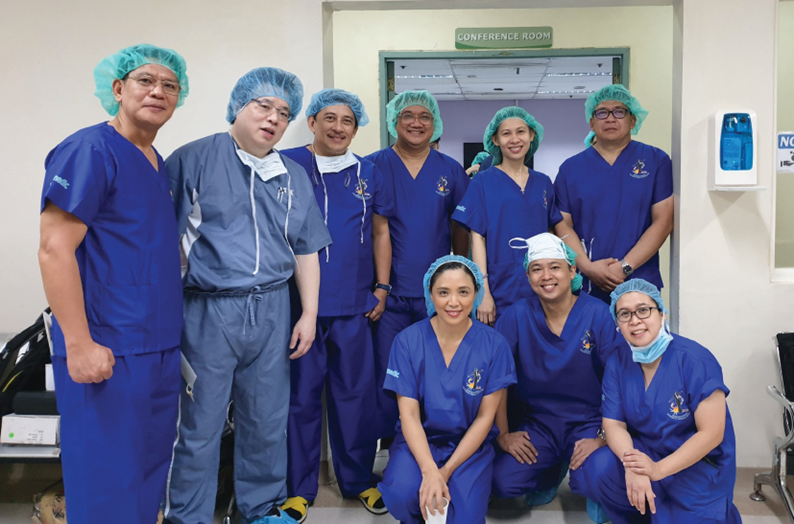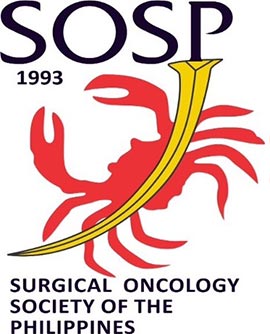
By: Caryl Joy P. Nonan, MD
"The practice of surgical oncology offers the potential for tremendous personal and professional satisfaction. Few careers provide the opportunity to have such a profound impact on the lives of others and derive meaning from work"
Surgical Oncology is a subspecialty of surgery which deals in the diagnosis, removal, and treatment of solid tumors. Majority of malignancies are usually solid tumors e.g. carcinomas, sarcomas, or lymphomas - and an integral part in the treatment of these tumors is performing correct and sound oncologic surgery in order to ensure better prognosis and survival.
It takes years and extensive academic training and preparation before you become a surgical oncologist: 4 years of pre-medical school, 4 years of medical school, 1 year of internship, 5 years of general surgery residency training, and an additional 2 years of surgical oncology fellowship. At present, there are only 9 accredited training institutions for surgical oncology: 6 in Luzon, 1 in the Visayas, and 2 in Mindanao. During fellowship training, your skills will be honed in diagnosing cancer patients through thorough history taking and physical examination, doing the diagnostic procedures yourself (endoscopy, sonography, ultrasound-guided biopsy), planning and performing complex cancer surgeries with the guidance of your consultants, knowing what and when to give neo-/adjuvant treatment, and ensuring proper disease surveillance and follow-up. Engaging in scientific research and writing is also highly encouraged. During your senior year of fellowship, you could also have elective rotations on your specific field of interest (e.g. esophagogastric surgery) here in the country or abroad. Just recently, the Philippine Board of Surgical Oncology was established to provide board certification to those surgical oncology fellowship graduates who will pass an examination designed to assess training, skill, and knowledge in surgical oncology.
Being a surgical oncologist requires physical stamina as well as mental fortitude. There would be days where you will be doing an 8-hour surgery and then there are days where you’ll only perform an hour-long surgery. This, on top of studying and keeping abreast with the latest guidelines, seeing patients in the clinic, doing diagnostic procedures to establish tissue diagnosis, and meeting with patients and their family to discuss a treatment plan feasible and acceptable with everybody. Being a good communicator coupled with a healthy dose of empathy is essential, given that conversations with patients (and in Filipino culture, also their family and extended family) oftentimes involve in-depth discussions about the diagnosis, acceptance of the diagnosis, best course of treatment, prognosis and survival. A surgical oncologist’s doctor-patient relationship is unique in a way that it does not end once surgery is done - this one here entails a long-term commitment. Adjuvant therapies may be needed, close follow-up consultations are necessary, and disease surveillance is of utmost importance. Long before you know it, these patients become your friends and you become part of their extended family – you rejoice with them when they’ve successfully completed their treatment and go into remission, and you also feel sorrow if their cancer recurs, and they eventually succumb to the disease.
Going into this subspecialty, you need not only have to be a skilled surgeon, but you also must have heart. You will be your patient’s foremost advocate as they navigate the long and scary road of cancer treatment and therapy. As what Shanafelt wrote in an article published in Annals of Surgical Oncology, “The practice of surgical oncology offers the potential for tremendous personal and professional satisfaction. Few careers provide the opportunity to have such a profound impact on the lives of others and derive meaning from work.”1 It is an honor and a privilege to become a surgical oncologist.
1 Shanafelt, Tait MD. A Career in Surgical Oncology: Finding Meaning, Balance, and Personal Satisfaction. Annals of Surgical Oncology 2008 February; 15(2): 400–406.

